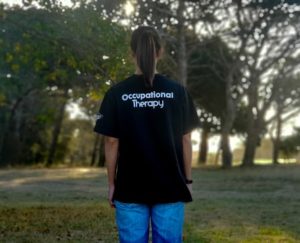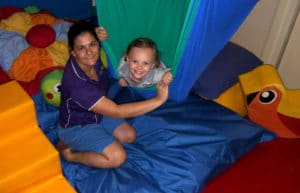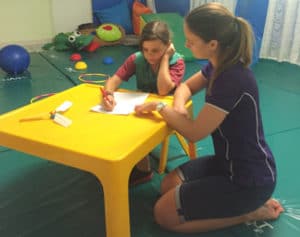Children love to play and learn in the environment around them. They are happiest when they can connect with others and do things independently in a fun and interactive way. However, some children lack the skills it takes to master some of these situations because of physical, sensory, processing or cognitive reasons.
In many cases, occupational therapy can make a big difference to help children become independent.
Here are some ways occupational therapy can help children:
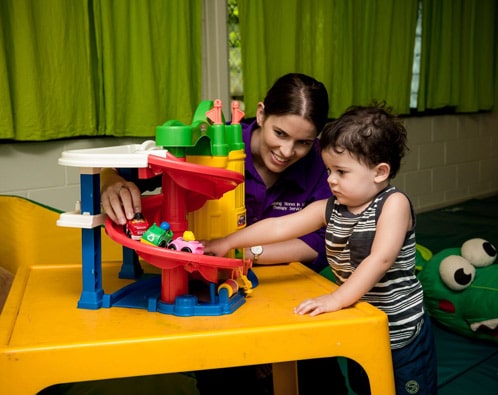
Can help children achieve age-appropriate development milestones
OT can help a child who is behind in developing skills that are common during a particular age or during a specific period of time. These can be things like not sitting, crawling or walking by the right age. Other areas of concern can be not developing age-appropriate play and social skills, or not communicating appropriately.
Social interaction difficulty
Social interaction skills are essential for adults and children to bond and build relationships with people in their life. Occupational therapy could be valuable if children are experiencing things such as:
- Avoiding the appropriate eye contact while talking
- Difficulty interacting socially with family and peers
- Difficulty interacting and playing with other peers
- Difficulty adapting to new environments and large gatherings
- Delayed communication or language skills
- Can’t cope in the school environment
Inadequate or inappropriate play skills
Being able to play may seem like something all children can do naturally, but some children can experience difficulty in this area. Play is crucial for building cognitive skills, learning problem solving and developing social skills.
A couple of signs when a child might need OT are:
- Does not explore toys appropriately
- Engages in repetitive play for hours (e.g, lining up toys)
- Prefers to play alone rather than with an adult or peer
- Constantly on the go without purposeful play
- Short attention span and may move quickly from one activity to the next
- Difficulty in joining with peers/siblings when playing
- Does not understand concepts of sharing and to take turns
Gross motor and fine motor skills delays
Gross motor skills are the physical skills that require whole-body movement, and which involve the large core stabilising muscles of the body to perform everyday functions, like standing, walking, running, and sitting upright. It also includes hand-eye coordination skills such as ball skills, throwing, kicking and catching. This might also affect a child who has low body strength or might be uncoordinated. It can also affect areas of balance, the ability to climb, doing things with both sides of the body and can affect endurance.
Fine motor skills are the smaller skills we use physically, such as holding a pen to write, cutting with scissors, holding a small object, picking up a spoon, and tying shoelaces.
If fine motor skill issues aren’t addressed, a child with delays in this area could have a hard time performing essential activities like writing and using computers at school.
Sensory processing disorders
Sensory processing disorder or SPD is a neurological disorder which delays reactions in the way sensory processing occurs. If a child has a disorder in this area, they would be showing signs of concern surrounding vision, hearing, touch, smell, taste and body awareness.
If you feel your child’s sensory behaviours are interfering with their ability to focus or complete day-to-day activities, you might need to consult a paediatric occupational therapist.
If you have any concerns about your baby or children’s occupational development book an appointment with one of our qualified occupational therapists in Darwin today!
Author
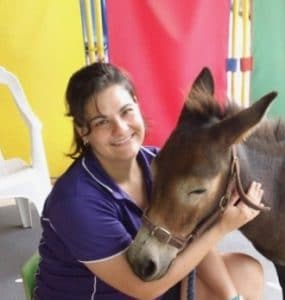
Barbara Kapser
Barbara Kapser is our psychologist at Stepping Stones in Life Therapy Service in Darwin. She's a member with the Australian Psychological Society and the Australian Association for Infant Mental Health.
She specialises in perinatal infant mental health, attachment disorders, developmental trauma and behaviour support.



